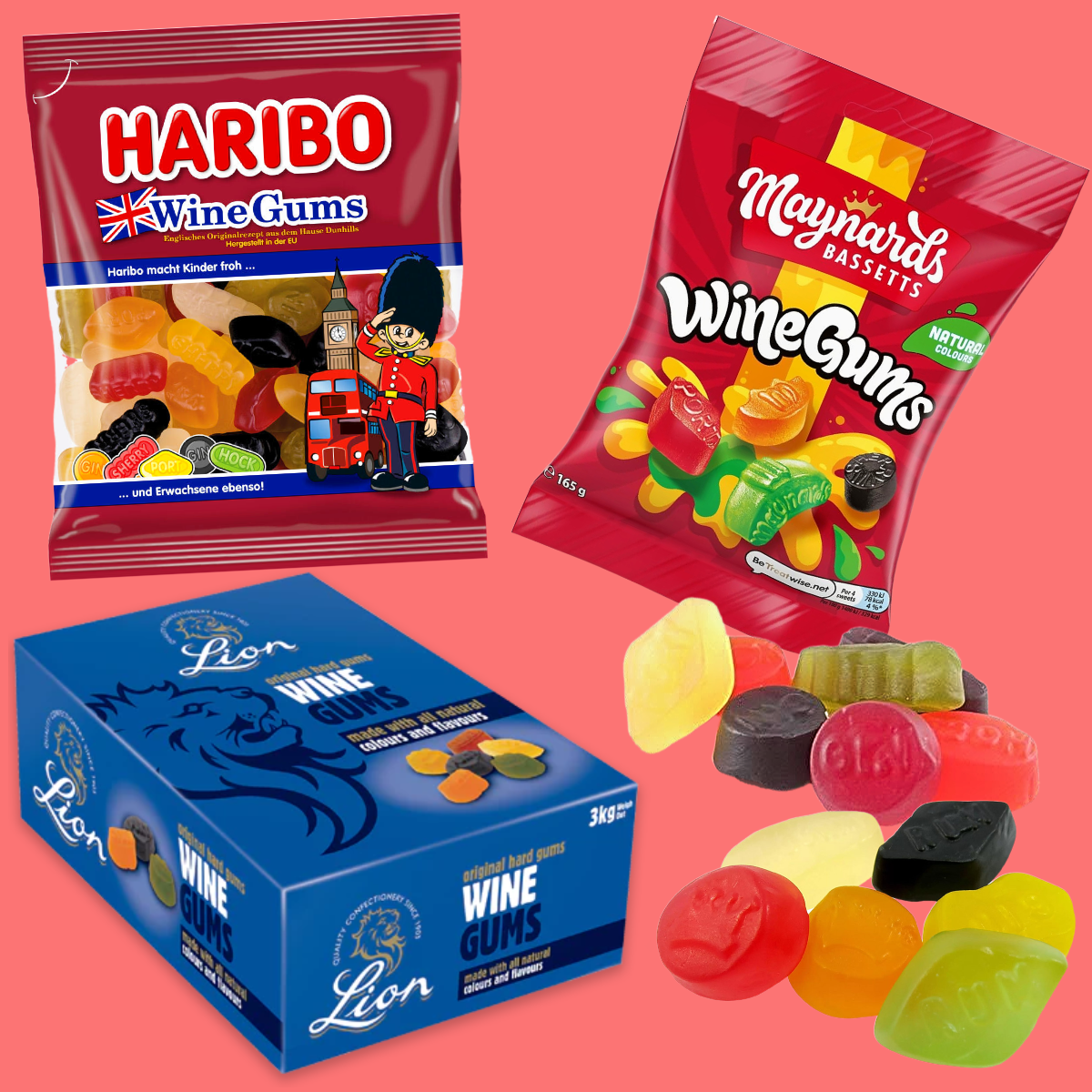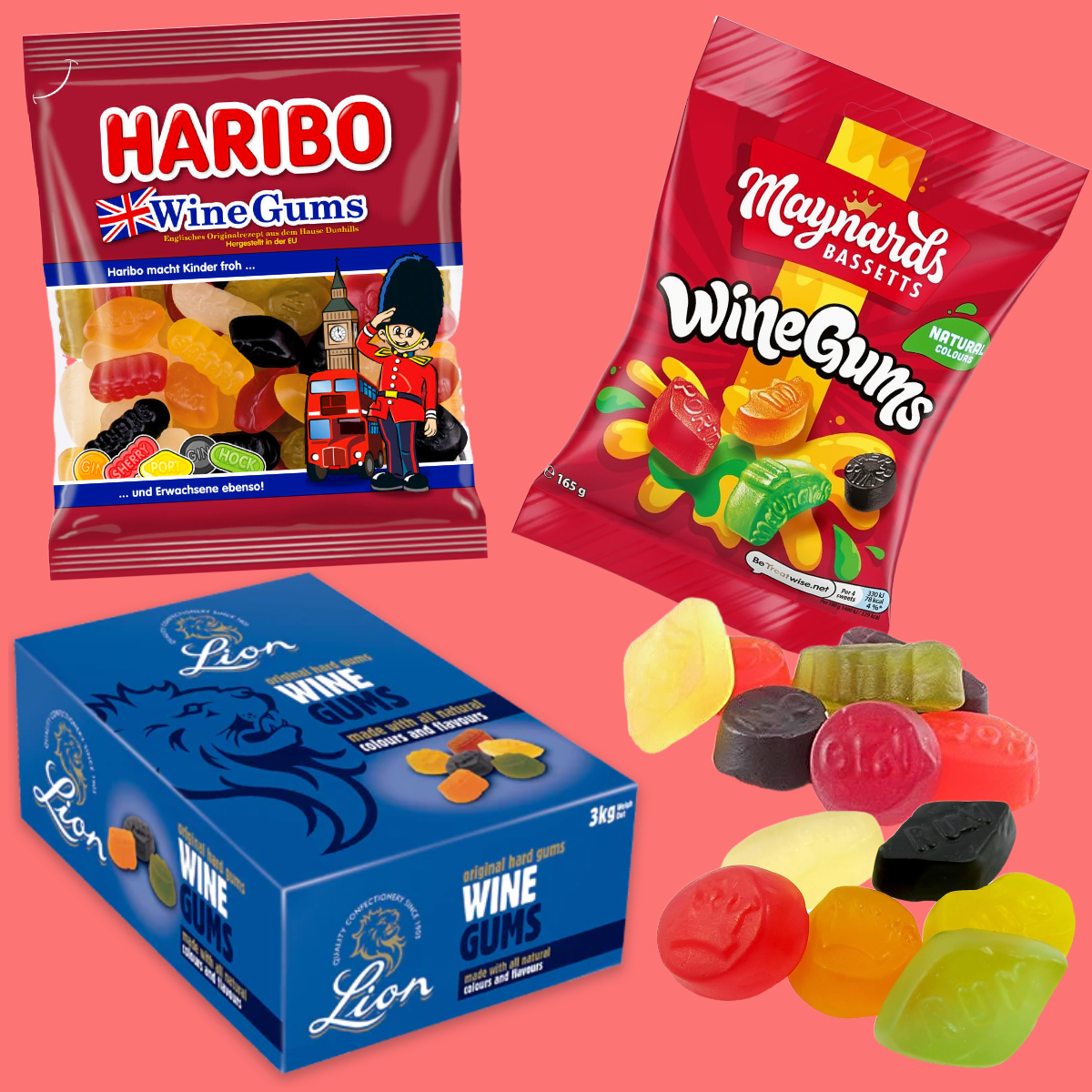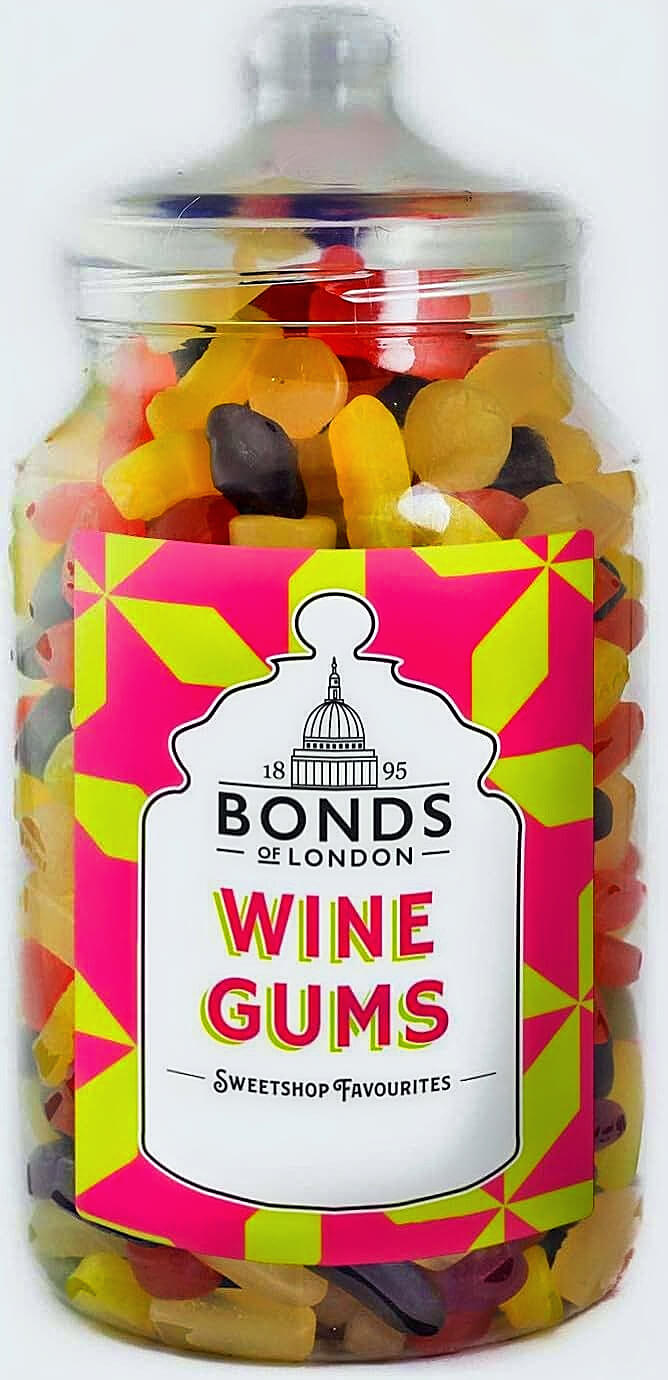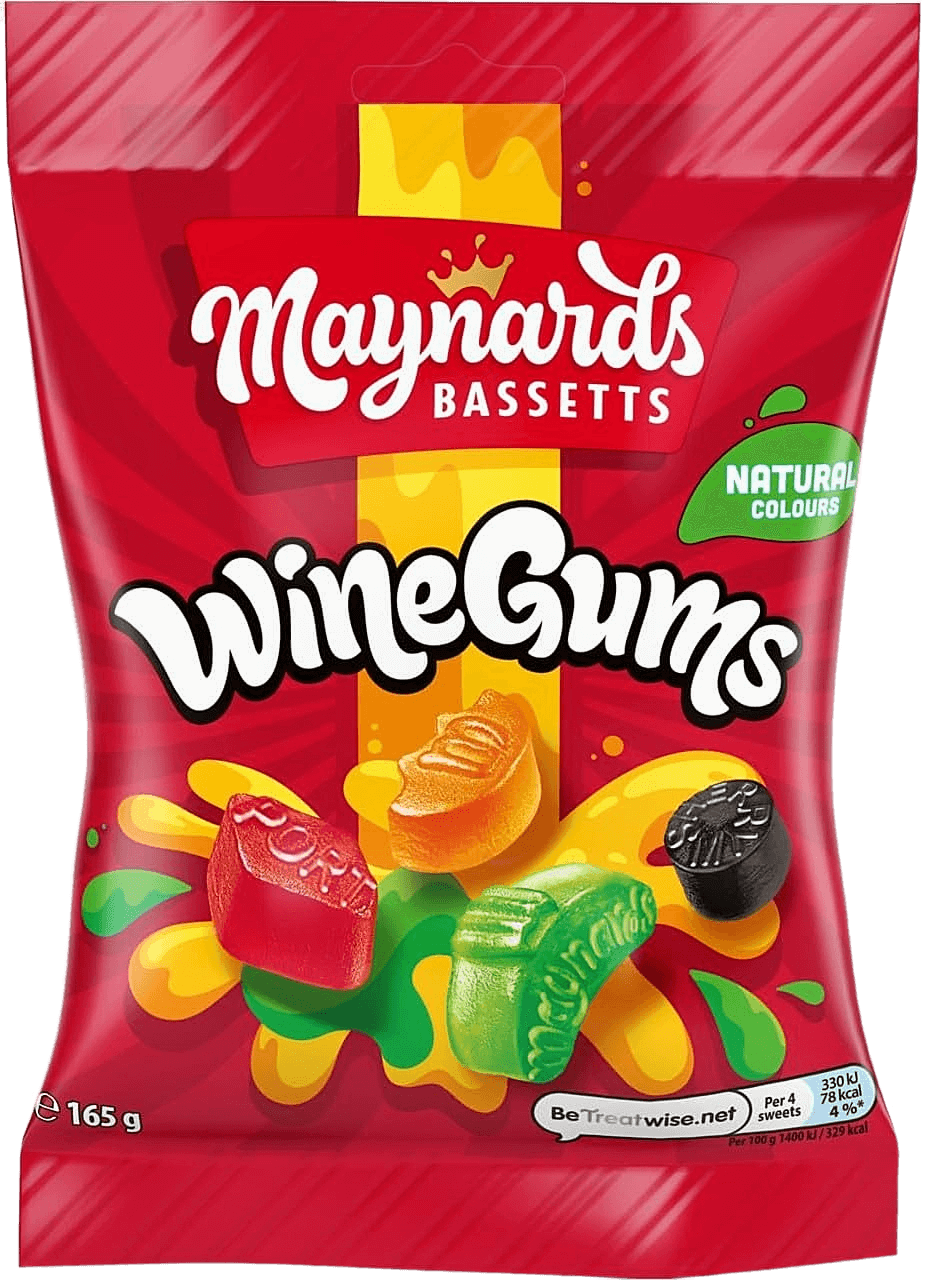Wine Gums: Everything You Need To Know!

Wine Gums are a traditional British gummy sweet that have been enjoyed for well over a century. The biggest manufacturers of Wine Gums are Maynards Bassetts, Lion and Haribo. The chewy, fruit flavoured sweet traditionally comes in a variety of five or six different flavours, colours and quirky shapes. Here is everything you need to know about them...

When were Wine Gums first introduced?
Wine Gums were launched by Maynard's in 1909. They were developed by Charles Gordon Maynard, the son of Charles Riley Maynard, although he struggled to convince his teetotal father that they did NOT contain wine! Charles Riley Maynard had started producing and selling sweets with his brother Tom in 1880, from their family kitchen in Stoke Newington, London.
Lion confectionary has also been making Wine Gums in the United Kingdom for over a century, and is currently owned by Valeo Confectionary, although was one owned by Cadbury. These have a firmer texture than other brands and, therefore, tend to last longer in the mouth.
Lion have been making gummy sweets since 1903, and the company was started by Frank & Albert Hillard, who made sweets in a row of cottages in their home town of Cleckheaton, Kirklees, West Yorkshire, England. Local shopkeeper John Hillard invested in the company, but insisted they used the same name as his Lion Stores chain.
Disclosure: This page contains affiliate links. As an Amazon associate, I earn from qualifying purchases.
Why are they called Wine Gums?
Each gum represents a different type of wine, and is traditionally imprinted with the name of a different variety on the top. Names used include Sherry, Port, Champagne, Burgundy and Claret. However Maynards Bassetts also stamp their gums with "Maynards" and the letter "M". Haribo use Gin, Hock, Port and Sherry.
Do Wine Gums contain real wine?
The simple answer is no! Wine Gums do NOT contain wine. Some sources on the internet suggest that fermented wine was originally used in the sweets. However, according to an article about Maynards Wine Gums once published on the Cadbury's website, Maynard's have never used real wine in their sweets. Other brands may have used wine in the past, but modern day gums do not.

A jar of Wine Gums by Bonds of London
What are the Wine Gum Flavours?
There are usually five or six flavours, but these vary with each manufacturer. The red gum can be raspberry, strawberry, redberry or even redcurrant in the UK, but in the U.S. the flavour is more likely to be cherry. The yellow gum is almost always lemon, Orange is orange or tangerine flavoured, green is lime, and black is blackcurrant, but can even be liquorice! Some manufacturers have a white Wine Gum which is grapefruit or pineapple.
What are the Wine Gum shapes?
The original shapes for each sweet are traditionally kidney, crown, rhombus, circle, and oblong. However, these shapes vary with each manufacturer.
Where are they made?
Maynards Bassetts Wine Gums have been made at the Cadbury Trebor Bassett factory in Sheffield since 1991. Before this, they were manufactured at Vale Road in London. Maynards and Bassetts (George Bassett & Co.) are both brands of Cadbury (owned by Mondelez International, Inc., which was originally Kraft Foods). The two brands merged in 2016 to form Maynards Bassetts, which is the brand that Wine Gums are produced under today.
Although Haribo is a German company, Haribo Wine Gums are made by Dunhills in Pontefract, England.
Lion Wine Gums are still made with the traditional recipe and made at a British factory.
Which Wine Gums are suitable for vegetarians and vegans?
Maynards Bassetts Wine Gums are NOT suitable for vegetarians and vegans. Please note they contain sulphur dioxide/sulphites and wheat.
Lion Wine Gums contain natural flavours and colours, but this includes beef gelatine and also carmine, a natural red food dye which is made from the crushed bodies of cochineal insects. So they are definitely not suitable for either vegetarians or vegans.
Haribo Wine Gums contain beeswax and animal-derived gelatine, so they are not vegan friendly and unsuitable for vegetarians.
Bonds Of London use pork gelatine in their Wine Gums, and so are not suitable for vegans or vegetarians, although they use no artificial flavours or colours.
Where can I buy Wine Gums?
They are widely available due to their popularity, and can be bought in local newsagents, supermarkets, sweet shops and online confectionary stores. Buy Wine Gums from Amazon.co.uk.
I hope that you discovered everything you need to know about Wine Gums. You may also like our Top 10 Facts About Skittles Sweets
